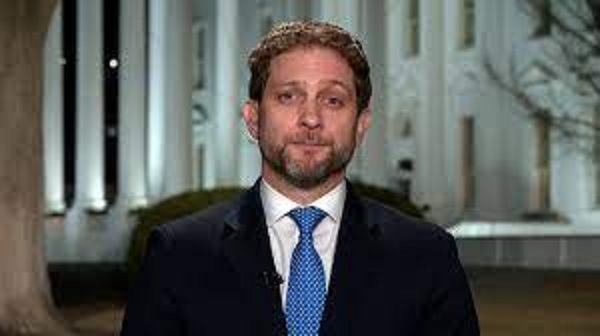Washington: The US, through the official state visit of Prime Minister Narendra Modi, is looking to convey that the relationship between India and America is of “positive strategic consequence”, the White House has said.
Prime Minister Modi arrives in Washington DC on a three-day state visit on June 21. The welcome ceremony and the state dinner along with an address to the Joint Session of the US Congress are scheduled for June 22.
Speaking at a panel discussion during the annual ‘India Ideas Summit’ of the US India Business Council on Tuesday, Principal Deputy National Security Advisor Jon Finer said after years of strengthening ties across administrations, the US-India partnership is deeper and more expensive than ever.
“The main message that we are looking to convey is that this is a relationship of positive strategic consequence,” he said.
“We think we are much more deeply aligned and significantly converging with each other on numerous global issues and innumerable ways we can benefit each of our populations.
“What you will see when Prime Minister Modi comes and is able to spend some time with President Joe Biden in this setting, is a modern relationship between two significant countries that will benefit their own people,” Finer said.
He said in just eight days, President Joe Biden and First Lady Jill Biden have the honour to receive the Prime Minister of India at the White House for an official state visit and dinner, which is the third such occasion for this administration.
“I can tell you, … how much he’s looking forward to it, how much attention to detail is given at the very highest levels for governments and it’s good evidence of that,” he said.
The two governments are deepening the strategic convergence, strengthening policy alignment to elevate and expand strategic technology and defence industrial cooperation, Finer said.
“We really believe that we now look instinctively to each other and more cooperatively, to uphold a free and open Indo-Pacific to drive innovation and to jointly tackle global challenges,” the White House official said.
Observing that India and the US are natural partners, Finer said the two countries are ready to meet the challenges and seize the opportunities of this unique moment together.
“Working with other like-minded partners, our countries will shape the future, working towards a world as more open and more prosperous, more secure, more stable, more resilient. This offers a brief overview of the highlights as we see them of the partnership that we are building,” he said.
India, being the major defence partner, saw the two countries consult regularly to assess regional developments and put in place an architecture to cooperate more closely through joint exercises, information sharing, logistics networks and interoperable communication systems, he said.
“We continue to strengthen India’s status as a major defence partner through defence industrial cooperation that Co-develops and co-produces important military capabilities for both of our countries,” Finer said.
“Second, our Strategic Technology Partnership. I know you’re all aware of our pathbreaking initiative on critical emerging technologies, ICET, ….which has already catalysing government, business and university cooperation in defence space semiconductors, advanced telecommunications biotechnology, emerging technologies like AI and quantum to foster an open, accessible and secure technology ecosystem,” he said.
Finer said this technology ecosystem in areas such as 5G will offer other countries beyond just US-India advanced communications alternatives that are consistent with their shared democratic values.
“Third, is our work together on the clean energy transition, the United States and India share a common vision to decarbonise our economies and deploy clean energy, which is obviously reflected in all of our country’s 2030 targets for climate action and energy,” he said.
In countries, the energy transition can be more consequential to the world than India and the US.
“Together, we are pushing each other to develop and deploy innovative solutions to strengthen climate security, expand peaceful uses of civil nuclear energy and unlock climate finance solutions, to mobilise the information technologies and the resources we need to create the clean energy economy of the future,” Finer said.
“Fourth, as two of the world’s foremost centres of innovation, we are driving prosperity together,” he said, adding that bilateral trade last year was USD 191 billion, which has nearly doubled since 2014.
India’s G-20 presidency has brought renewed focus on strengthening multilateralism and international cooperation to tackle global challenges, and achieve UN Sustainable Development Goals, he said.
“Fifth, we are welcoming new education partnerships and taking steps to support the growing demand for travel between our countries,” he said.
The US mission last year issued 125,000 visas to Indian students which is a record, Finer said, adding that Indian students are on pace soon to become the largest foreign student community in the US.
“Our relationship is also grounded in values that are cherished by both our people and our founders: democracy, pluralism tolerance, openness and respect for human rights.
“These enable us to work together and to work together with civil societies and NGOs, to build a more resilient, more peaceful, more secure, democratic society,” Finer said.







